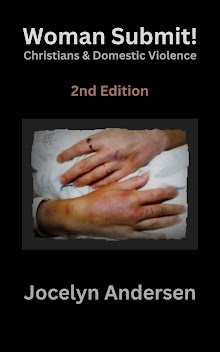The Feast of Unleavened Bread
predicted a major event relating to God’s plan of Redemption Hebrews 10:1.
We have explored the scriptural evidence that Passover represented the atoning
death of Messiah on the cross. The feast directly following Passover, so
closely it overlaps, is called Unleavened
Bread.
The feast of Passover
begins on the 14th of the month and the feast of Unleavened Bread begins on the
15th of the month Leviticus 23:6. The Children of Israel observed
the Feast of Unleavened Bread by removing all leaven (yeast) from their homes.
They were not commanded to simply refrain from using leaven during this feast,
but were commanded to physically remove every
bit of it from their dwellings Exodus 12:15-19.
As with all the feasts, no servile work is permitted during the feast of Unleavened
Bread. This is symbolic of the grace (apart from the Law) Christ would bring Leviticus
23:6, Exodus 12:16, John 1:17.
What exactly did
the leaven represent? What was symbolically removed
from each Israelite home during the feast of Unleavened Bread?
Galatians 5:1-9 answers this question and establishes this
leaven to represent the Law of Moses. The entire book of Galatians deals various
aspects of believers who understood that they were saved by faith, but were attempting
to maintain their salvation through observing the Law.
Are Christians Required to Obey the Law of
Moses?
Galatians 5:9 tells us, “A little leaven leavens the whole lump.”
Just as a small amount of leaven permeates an entire loaf,
not just a certain portion of it, trying to mix even a small amount of law with
faith results in obliging an individual to observe the entire law—a dangerous
practice according to the Bible, which says the mixing Law and Faith has the
undesired effect of making Christ of no
effect at all in one’s life Galatians 5:3-4.
**It is recommended at this point to read the entire book of
Galatians. The book of Galatians contains only six chapters and should be read
in its entirety.
Galatians 5:9 reveals that the leaven represents the Law of Moses, and
during the feast of Unleavened Bread the people are commanded to put away all leaven from their homes.
In Galatians 4:24, Hagar the bondwoman was a scriptural allegory
representing the Mosaic Law. Abraham was commanded to cast out the bondwoman and her son.
Question: Since that was the case, why was the law necessary in the first
place?
Answer: In order to protect 'âdâm
until the
redeemer could come, God revealed his
ways to Moses and gave him ordinances (laws) to keep. The law not only
revealed Christ, but also guarded and protected all who submitted to it until
faith (Christ) came Galatians
3:23-24, 4:4-5, Psalms 103:7.
The first man and the first woman needed to obey only one commandment before the fall, but the
introduction of sin into creation mandated the need for many ordinances that foreshadowed
the Redeemer, and, like the Tree, were also given for protection. The prophetic
aspect of the Law acted as a tutor or teacher (schoolmaster) to bring to Christ
Galatians 3:23-25, Revelation 19:10.
Since the resurrection of Jesus, we are no longer under a
schoolmaster (the Law). Jesus fulfilled all
the requirements of the Law for us, and became the end of the Law for righteousness to all who believe Romans
10:4, Galatians 3:25, Colossians 2:14, Romans 10:4.
The feast of
Unleavened Bread and the traditions associated with it accurately predicted the
putting away of the Law of Moses.
The fact that the
feast of Unleavened Bread, where the Law of Moses was symbolically swept away
while Christ’s body still lay in the grave, effectively refutes the notion that
Jesus had to suffer in hell for our sins. The sin price was paid in full before
he was ever taken down from the cross. While he yet lived, just before he
released his hold on life, our savior uttered the words, IT IS FINISHED (PAID)!
Exodus 12:15, John 19:30
No other atonement
or penance on Jesus’ part was necessary.
It is worth noting, again, that during the Feast of
Unleavened Bread no servile work was to be done. This foreshadowed the time
when forgiveness of sins would be available without the works and sacrifices of
the law.
Chapter Review
·
What does Hebrew 10:1
tell us about the Mosaic Law?
·
According to Galatians
5:4, what will happen to Christ in our life if we attempt to maintain our
salvation through obedience to the law?
·
Galatians 3:23 tells
us we were protected under the law until when?
·
Did you read the
entire book of Galatians?
**The entire Bible can be read every year by reading just four chapters a
day. It is recommended to read your Bible prayerfully, always picking up today
where you left off yesterday.
The article above is an excerpt from the book, Redemption: Bible Prophecy Simplified


.png)








No comments:
Post a Comment